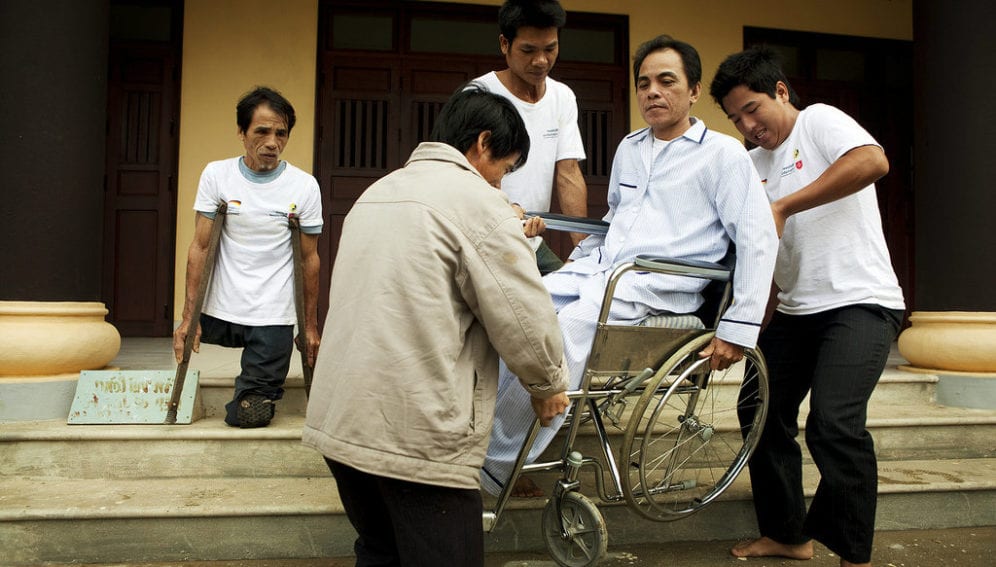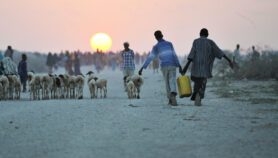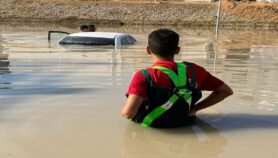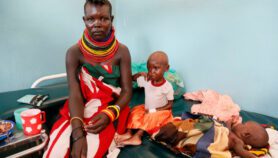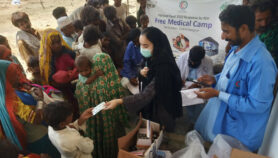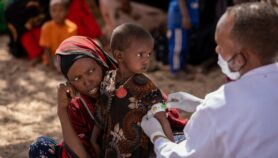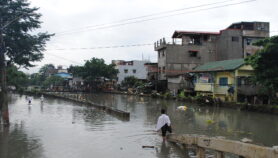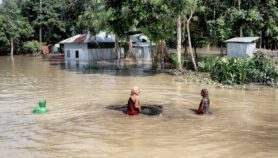By: Wagdy Sawahel
Send to a friend
The details you provide on this page will not be used to send unsolicited email, and will not be sold to a 3rd party. See privacy policy.
The UN is surveying people with disabilities to find out how they cope during disasters, and to help include disability in the post-2015 development agenda on disaster risk reduction.
The survey, launched last week (29 July) by the UN Office for Disaster Risk Reduction (UNISDR), and said to be a world first, covers the types of hazards and risks that disabled people are exposed to in disaster zones, and personal and national plans for action and risk reduction.
The results will be announced on International Day for Disaster Risk Reduction (13 October), which this year has disability as its theme.
"The survey is open to anyone who would like to take it up. We are hoping for responses from across the globe," Denis McClean, spokesperson for UNISDR, tells SciDev.Net.
"Our regional offices are in contact with groups representing disabled people and encouraging them to use it."
“This survey is a collective first step to establish databases for evidence-based and science-based ways to better address gaps on vulnerability.”
Philipp Danao
He adds that the survey has the support of UN Enable, WHO, Unicef (UN Children's Fund), the Disability-inclusive Network for Asia and the Pacific, the Gender and Disaster Network, and the Huairou Commission — a global coalition that aims to empower grassroots women's organizations.
"It's too early to say what the take-up will be but we are optimistic that it will garner several hundred responses and provide input on the disabled for the post-2015 disaster risk reduction framework, which will succeed the Hyogo Framework for Action," McClean says.
Philipp Danao, coordinator of disaster risk reduction at Malteser International, a relief agency, says it is circulating the survey in Myanmar in the Burmese language.
"This survey is a collective first step to establish databases for evidence-based and science-based ways to better address gaps on vulnerability of persons living with disabilities and, more importantly, recognise their capacities during disasters, which can be translated into action-focused policies," Danao says.
But Ahmed Fathy Alsaka, a physically disabled student at Technical Industrial Institute in Egypt, tells SciDev.Net that "so far this UN survey is just a paper exercise".
"Let's wait and see how the outcome of such a survey will be translated on the ground to benefit people with a disability in developing countries," he comments.
And Dewald van Niekerk, director of the African Centre for Disaster Studies at North-West University in South Africa, is also cautious.
"Its results may be used as a starting point for policy discussions and a platform for future research," Niekerk tells SciDev.Net.
He says the survey has limitations and should not be used as the only evidence for policy decisions.
"As it is dealing with disabled people the potential for response error is high. Will people with mental difficulties be able to accurately answer this survey? The language the questions are phrased in is much too academic and formal. This may introduce bias," he says.
According to Niekerk, a single quantitative survey cannot capture the diversity of people's environments and type of disability.
"Each person's disability is unique and will require unique preparedness and response behaviours. Using this survey to make recommendations for effective coping strategies for large numbers of people with disabilities will inevitably miss context-specific factors," he says.
"These concerns call for supplementary qualitative research on context which will capture the influence of individual and environmental factors on coping strategies, and which will be invaluable to effective policy development," Niekerk concludes.
McClean responded to the criticisms by calling for a broad backing to ensure the survey delivers "good quality information" and that it "gets the message across that people living with disabilities need to be a part of the planning process".
"The survey will only be as good as the response that it elicits from people living with disability," he says.
"It's always better to light a candle than to curse the dark," McClean adds. "We know that people living with disabilities are disproportionately affected by disasters. We hope this survey will go some way towards telling us why this is so and start a conversation. Academics and researchers are welcome to follow on from it. It's surprising that nothing like this has been attempted before."
Link to 2013 Survey on Living with Disabilities and Disasters


